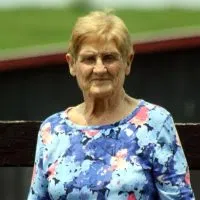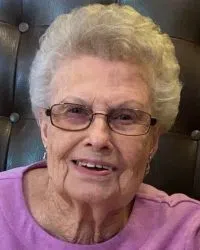(ANGELA BRIGGS/WCLU NEWS)
A little over 100 people could be seen on Glasgow’s Public Square this past Friday vocalizing their support of Dr. Andy Turner. To give a little background, Dr. Andy Turner is a General Practitioner and works at Graves Gilbert Clinic in Glasgow. Dr. Turner has been prescribing a COVID-19 protocol that included Ivermectin, but was recently told by Graves Gilbert that he was no longer allowed to do so. When word spread, many took to social media to speak out and others headed to the square. Jeff Sneed was there on Friday in support of Dr. Turner. Sneed, who owns Jeff’s Country Florist, has had COVID-19 himself:
“I took a lot of those medicines from the beginning,” he said. “And I feel my life was saved because of it.”
In a since-deleted Facebook post, Dr. Turner said he would no longer be able to offer this “Right to Try” treatment, which he believed was safe and effective. According to this same post, of the over 215 patients treated with this regimen, Dr. Turner claims the survival rate was 99.5% and hospital avoidance rate was 98.1%. It should be noted that those severely ill would likely go to the ER instead of the doctor’s office and no other information was released.
Described online as a protest, the crowd on Friday was much more like a march in solidarity with Dr. Turner. Glasgow resident Abby Medford was also there on Friday to publicly support Dr. Turner and she says his actions took a lot of courage:
“I know that it has taken a lot of courage for him to think independently,” she said.
The political divide in the U.S. has certainly deepened over the past few years. A Pew Research Poll conducted earlier this year showed that roughly 8 in 10 registered voters of both major parties felt their differences with the other side were about core American values. With each side convinced they are right, there is little room for discussion in between which leaves a lot of question. One of which was pointed out by Medford:
“We have to start recognizing the bigger picture and we have to start pushing back,” she said. ” We have a doctor who has successfully been treating people, who has prevented people from being hospitalized, who is helping them recover from COVID-19 much quicker and he’s been told to stop. Why? Why would any agency, entity, group of shareholders do that? And who is driving that?”
From what WCLU News can find, it all comes down to a liability issue. Since Ivermectin has not officially been labeled by Graves Gilbert Clinic as a treatment for COVID-19, their doctors are not allowed to prescribe it for that. The effectiveness or ineffectiveness for that matter does not matter, if it is outside of their approved parameters. Should something happen and a patient die, it could open Graves Gilbert up to medical malpractice lawsuits which could rack up millions and millions of dollars.
Approved or not, Sneed said it is about saving lives:
“I’m here, at this protest, because it might be my family or your family that is saved,” he said. “And I want to help save somebody’s life.”
The National Institute of Health (NIH) lists Ivermectin as one of the therapies under its COVID-19 protocol. The proposed rationale for treatment of COVID-19 patients, according to the website, is partly because of its anti-inflammatory properties. The NIH doesn’t recommend that doctors use or don’t use Ivermectin, but they do say it “has been shown to inhibit the replication of SARS-CoV-2 in cell cultures.” They do go on to say that the doses needed would be a lot higher than what is currently approved for humans and that more trials are needed.
A Pew Research Poll showed that 63% of U.S. adults say they’ve felt at least one of the two negative reactions regarding public health officials because of changing guidance: wondering if they were holding back important information or feeling less confident in their recommendations.
This sentiment was evident as Medford described the type of doctor she and her family wanted:
“I want somebody that is going to advocate for me,” she said. “That’s going to look for everything that’s available, that’s going to listen to me and is not going to be in fear of the AMA or the CDC or the NIH or whoever they are. I want somebody who is willing to be courageous, think outside the box and do hard things if my health is on the line.”
Pew also showed that three quarters of Americans said the country was now more divided than before the outbreak, 30 points higher than any of the other 13 nations surveyed.
No one here at WCLU is a medical doctor and we are in no way recommending one treatment over another. What we do encourage is open discussion with those who share opposing views with a genuine intent to understand their perspective.













